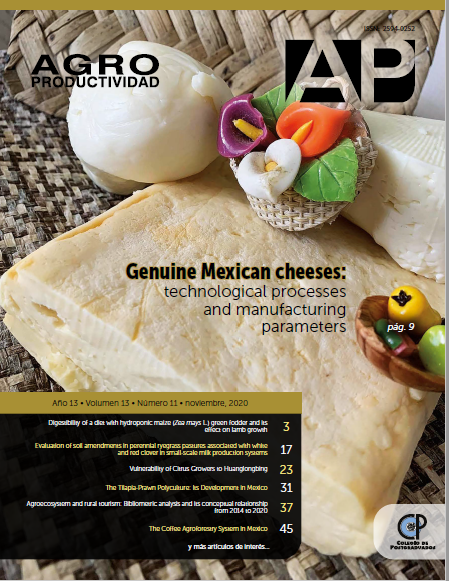Evolution of the Agri-Food Chain Concept in the 21st Century: The Taro Case
##plugins.themes.bootstrap3.article.main##
Keywords
Resumen
Objective: To conceptualize the agri-food chain and analyze its evolution during the 21st century: The case of taro.
Design/methodology/approach: A systematic bibliography review was carried out in journals specialized in agri-food chains, value chains, logistics, and supply chains; these studies sustained qualitatively and based on a study case, the agri-food taro chain.
Results: Currently, the agri-food chains include processes such as the supply of inputs and necessary facilities, production, transformation, distribution, and commercialization, among other services. The study of agri-food chains has effects on globalization in a more demanding macroeconomic setting. The growing industrialization of products generates added value and provides a competitive advantage to the agents that integrate the chain. However, the agri-food malanga chain presents disadvantages in its production, distribution, and storage processes, due to the disintegration of its links.
Limitations of the study/implications: Scarce information exists on the malanga agri-food chain.
Findings/conclusions: The agri-food chain concept has had a continuous evolution. Its structure aims to benefit each one of the chain links; compromises are generated to produce based on need. The integration and experience gained allow the strengthening and importance assessment of each link, improving revenues. Also, agri-food chains´ incorporation makes them more sensitive to climate change, nutrition, and sustainability.

